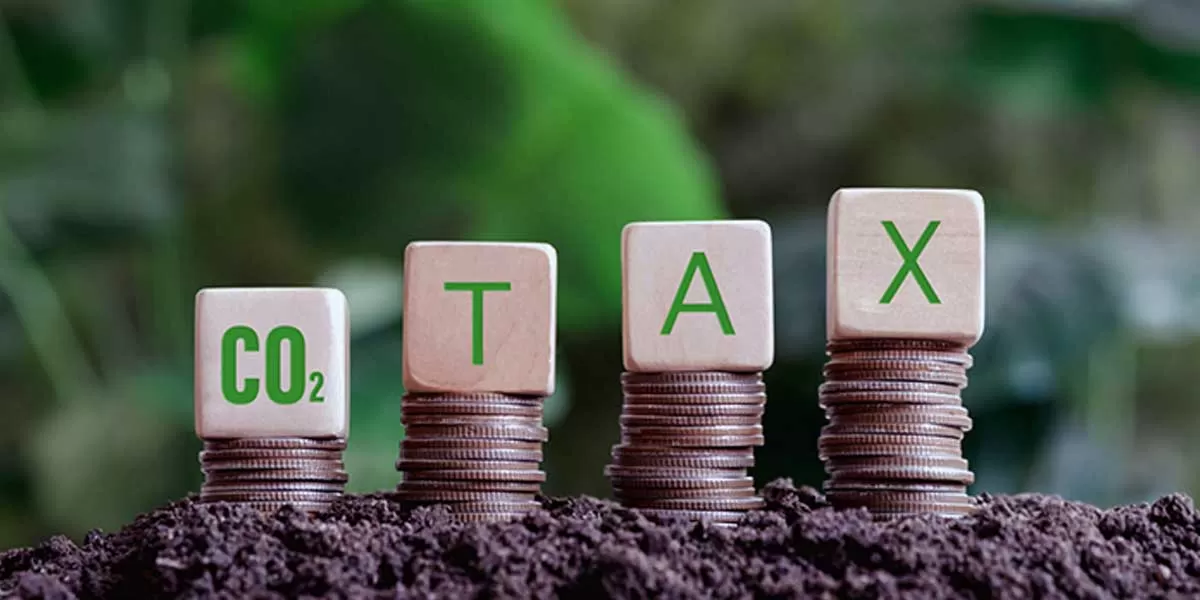The Carbon Border Adjustment Mechanism (CBAM) aims to treat imported goods the same as EU-produced goods to help global decarbonisation, according to the Director-General of the European Commission, Gerassimos Thomas, following a recent visit to India to discuss tax and custom issues.
CBAM, the European Union's planned tax on the carbon emitted while making goods imported from countries like India and China, has sparked a debate at multilateral forums, including the United Nations climate conferences. Poorer countries fear such tariffs will harm livelihoods and economic growth.
Director-General Thomas led a group of officials to New Delhi on July 1 and 2 to discuss tax and customs issues, focusing on CBAM. He met with Indian government officials and business leaders to explore the potential impact on Indian industries and explain CBAM's goals and timeline.
Thomas welcomed India's plans to decarbonise its economy, underlining the shared commitment to collaborate in their decarbonisation efforts. "My mission was an excellent opportunity to have direct, in-depth and meaningful interactions with my Indian counterparts and business representatives on a wide range of tax and customs matters, as well as CBAM. The importance of EU-India relations is growing. Both sides want to deepen this relationship to benefit business," Thomas said.
Through CBAM, the EU hopes to set a price on the carbon emitted to make energy-intensive products like iron, steel, cement, fertiliser, and aluminium in other countries. The aim is to reduce emissions from imports and create a level-playing field for goods made in the European bloc, which must meet stricter green standards. Developing countries are worried that the tax under CBAM would harm their economies and make it too expensive to trade with the bloc.
"Europe is a net importer of CBAM goods and wants to make sure that we continue importing goods with the lowest possible carbon intensity to contribute to decarbonisation at a global level. CBAM ensures that imported goods are treated equally to goods produced in the EU. It does not discriminate and has a very gradual phase-in to give maximum predictability for investors and businesses," Thomas said. He emphasized that the visit was an opportunity to listen, learn, and improve.
Thomas said, "To listen to the challenges that Indian businesses face when implementing CBAM. To learn, for example, if and how Indian Micro-Small and Medium-sized Enterprises (MSMEs) are possibly affected (as the CBAM measure normally affects only big enterprises). And to reiterate and jointly explore efforts to adapt and improve the CBAM measure."
Technical meetings with the Ministry of Power, including the Bureau of Energy Efficiency, will continue. An assessment report on the transition period will be submitted to the Council and the European Parliament before the end of next year. This report will be public, providing the opportunity for Indian industry and authorities to comment and discuss with the European Commission the next steps.
The visit also confirmed the mutual interest in deepening exchanges on respective carbon trading markets, pricing mechanisms, and EU cooperation with India in energy efficiency, renewables, and clean tech.
On taxation, Thomas discussed with Indian government counterparts the 'Two-Pillar Solution' to address the tax challenges of the digitalisation of the economy. India confirmed its commitment to 'Pillar 2'. Regarding the UN Framework Convention on international tax cooperation, it was agreed that the overlap between different tracks should be avoided.
The EU and India have had a long-standing Customs Cooperation (CCMAA Agreement) since 2004. Thomas used this week's interactions to focus on the latest customs challenges, including cross-border e-commerce and designer drug precursors. India agreed to reinforce bilateral ties and have closer cooperation on designer drug precursors under the existing CCMAA Agreement. Ongoing negotiations for an EU-India Free Trade Agreement (FTA) include an upgrade of this customs cooperation.




















